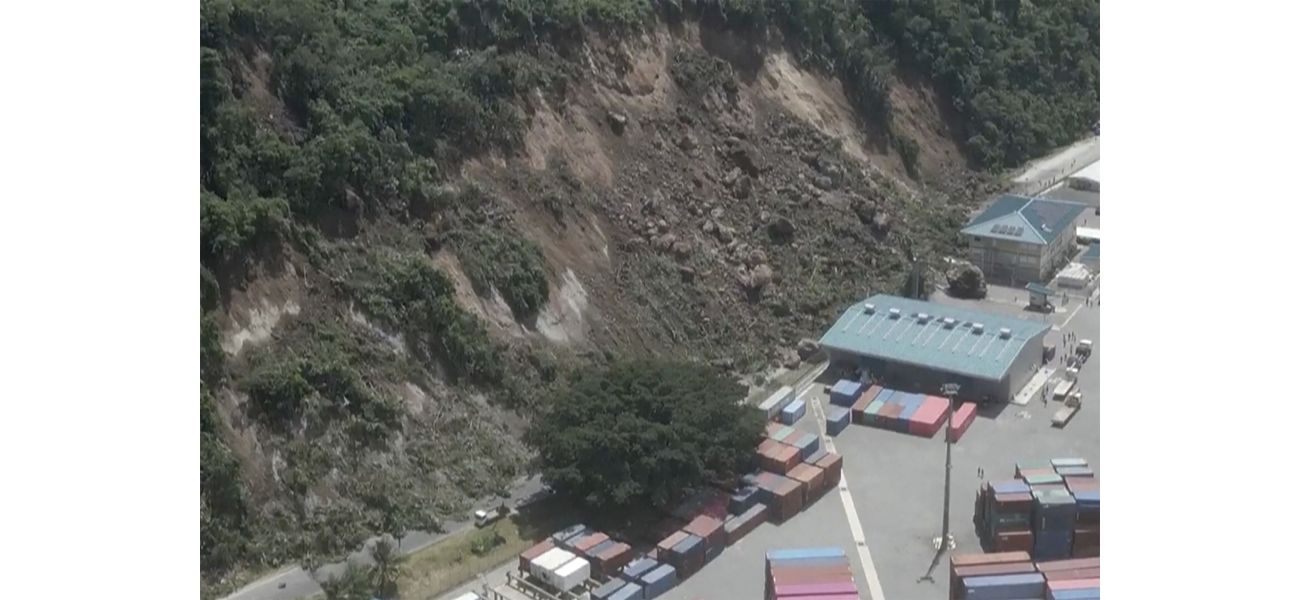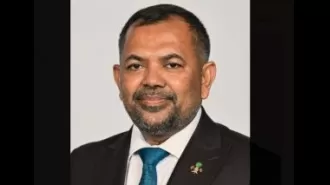Large groups gather at hospital following powerful 7.3 earthquake in Vanuatu.
A 1pm earthquake occurred at a depth of 57km and was centered 30km west of Port Vila.
December 17th 2024.

On Tuesday, a powerful 7.3 magnitude earthquake struck just off the coast of Vanuatu, a small island nation in the South Pacific. The impact of the earthquake was devastating, causing widespread destruction and injuries. As the injured began arriving at the hospital, there were unconfirmed reports of casualties.
Initially, a tsunami warning was issued, but it was called off less than two hours later. However, with communication lines down and limited official information, witness accounts of casualties started to surface on social media and through sporadic phone calls.
The earthquake occurred around 1pm, with a depth of 57 kilometers and was centered about 30 kilometers west of the largest city in Vanuatu, Port Vila. This group of 80 islands is home to approximately 330,000 people. Following the initial earthquake, there was also a magnitude 5.5 aftershock in the same area. The tremors continued throughout the afternoon and evening, causing great concern among the residents.
As phone lines and government websites remained down, the extent of the damage caused by the earthquake was unclear. The Geohazards Department, responsible for monitoring natural disasters, reported that their systems were offline due to power outages. The Department of Foreign Affairs and Trade also expressed their concern and stated that they were trying to confirm the impact of the earthquake and whether any Australians were affected.
Authorities urged residents to stay away from the coast for at least 24 hours until the tsunami and earthquake monitoring systems were operational again. While there were no confirmed reports of damage or casualties, stories of widespread destruction began to emerge on social media and in interviews.
One witness, Dan McGarry, a journalist based in Port Vila, shared his account of the chaos outside Vila Central Hospital. He heard of one death from a police officer and saw three people in distress. The hospital was overwhelmed with injured individuals, and doctors were working tirelessly to treat them. However, as McGarry pointed out, the nation was not equipped for such a mass casualty event.
Videos and photos shared on social media showed collapsed buildings and damage to various structures, including a building housing several diplomatic missions. The US Embassy, which had just opened in July, sustained damage, but all staff were reported to be safe. The Australian and New Zealand embassies also confirmed the safety of their workers.
The impact of the earthquake was not limited to structures. Landslides blocked roads, and the airport was damaged, making it impossible for flights to take off or land. The Australian and New Zealand governments offered their assistance, and several airlines canceled or postponed flights until the airport's status was determined.
Vanuatu has a history of natural disasters, including cyclones and volcanic eruptions. As a result, the country's buildings are designed to withstand damage from earthquakes, which are not uncommon in the area.
Despite the challenges and difficulties, the people of Vanuatu are resilient and accustomed to dealing with such disasters. However, the earthquake comes at a difficult time, with the country preparing for a snap election in January. The current Prime Minister asked for Parliament to be dissolved to avoid a no-confidence vote, but the people of Vanuatu are no strangers to adversity, and they will undoubtedly overcome this challenge as well.
Initially, a tsunami warning was issued, but it was called off less than two hours later. However, with communication lines down and limited official information, witness accounts of casualties started to surface on social media and through sporadic phone calls.
The earthquake occurred around 1pm, with a depth of 57 kilometers and was centered about 30 kilometers west of the largest city in Vanuatu, Port Vila. This group of 80 islands is home to approximately 330,000 people. Following the initial earthquake, there was also a magnitude 5.5 aftershock in the same area. The tremors continued throughout the afternoon and evening, causing great concern among the residents.
As phone lines and government websites remained down, the extent of the damage caused by the earthquake was unclear. The Geohazards Department, responsible for monitoring natural disasters, reported that their systems were offline due to power outages. The Department of Foreign Affairs and Trade also expressed their concern and stated that they were trying to confirm the impact of the earthquake and whether any Australians were affected.
Authorities urged residents to stay away from the coast for at least 24 hours until the tsunami and earthquake monitoring systems were operational again. While there were no confirmed reports of damage or casualties, stories of widespread destruction began to emerge on social media and in interviews.
One witness, Dan McGarry, a journalist based in Port Vila, shared his account of the chaos outside Vila Central Hospital. He heard of one death from a police officer and saw three people in distress. The hospital was overwhelmed with injured individuals, and doctors were working tirelessly to treat them. However, as McGarry pointed out, the nation was not equipped for such a mass casualty event.
Videos and photos shared on social media showed collapsed buildings and damage to various structures, including a building housing several diplomatic missions. The US Embassy, which had just opened in July, sustained damage, but all staff were reported to be safe. The Australian and New Zealand embassies also confirmed the safety of their workers.
The impact of the earthquake was not limited to structures. Landslides blocked roads, and the airport was damaged, making it impossible for flights to take off or land. The Australian and New Zealand governments offered their assistance, and several airlines canceled or postponed flights until the airport's status was determined.
Vanuatu has a history of natural disasters, including cyclones and volcanic eruptions. As a result, the country's buildings are designed to withstand damage from earthquakes, which are not uncommon in the area.
Despite the challenges and difficulties, the people of Vanuatu are resilient and accustomed to dealing with such disasters. However, the earthquake comes at a difficult time, with the country preparing for a snap election in January. The current Prime Minister asked for Parliament to be dissolved to avoid a no-confidence vote, but the people of Vanuatu are no strangers to adversity, and they will undoubtedly overcome this challenge as well.
[This article has been trending online recently and has been generated with AI. Your feed is customized.]
[Generative AI is experimental.]
0
0
Submit Comment





